This combination program leads to the concurrent completion of the existing MS in Veterinary Public Health & Epidemiology (MS VPHE) and the Doctor of Veterinary Medicine (DVM) degrees in four years. Graduates of the program are uniquely prepared to integrate knowledge from both the Public Health & Epidemiology and Veterinary disciplines and advance to careers in local, state, federal, and international public health agencies and academia.
Scholarships Available
Attention: New for Summer 2025 applicants
The MS VPHE/DVM Combination Program will offer a scholarship to one outstanding applicant each year that covers tuition and fees associated with the MS VPHE portion of the program in its entirety (4 years). Additional opportunities for partial scholarships may be available subject to availability of program funds.
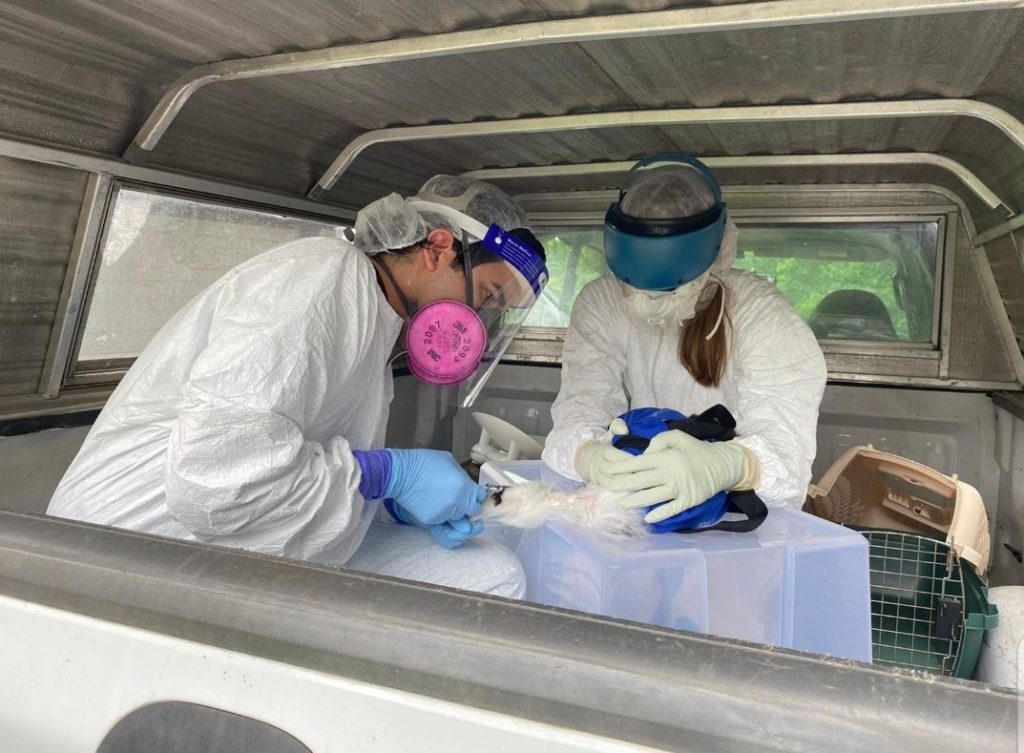
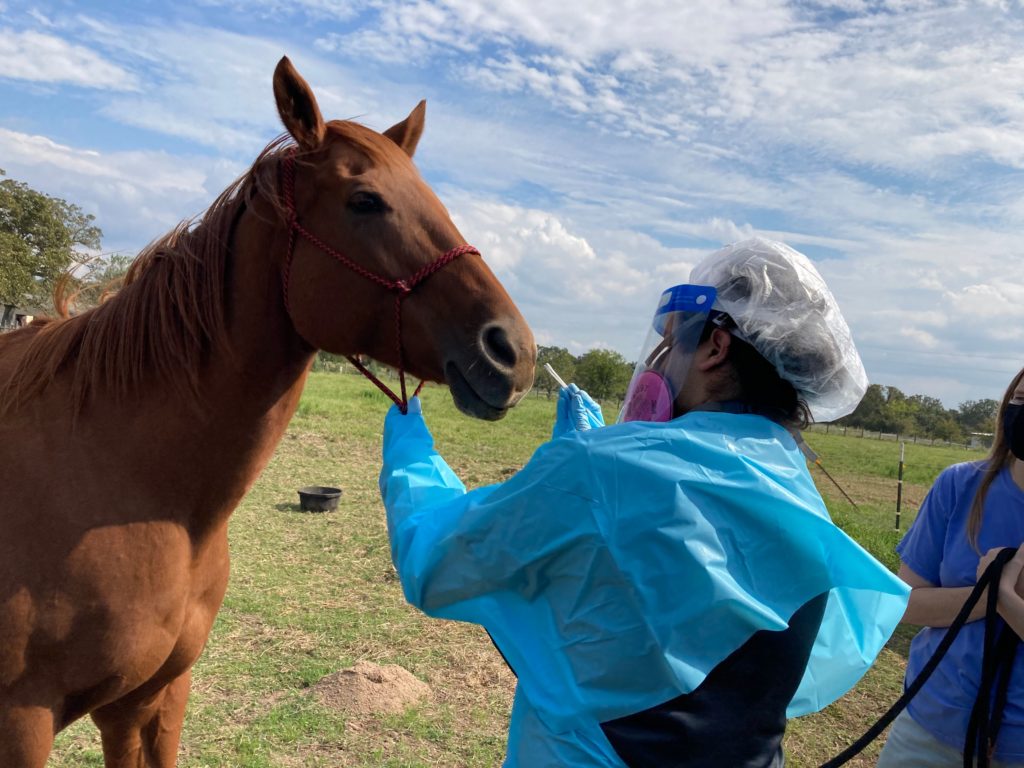
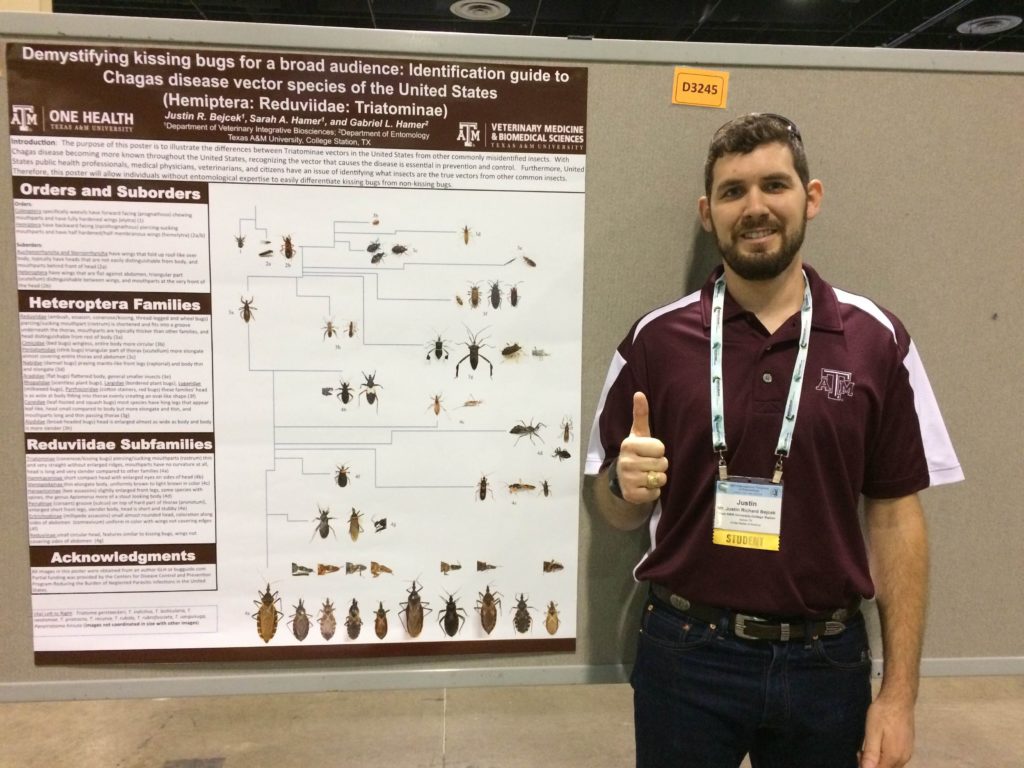
Learn More
Why pursue an MS VPHE / DVM?
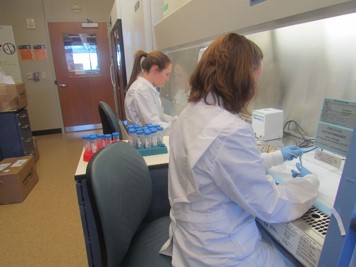
There is a critical need for well-trained personnel (MS VPHE/DVM) to tackle emerging infectious disease outbreaks now and in the future. Stressors to the health of humans, wild and domestic animals, and ecosystems are increasing in number and severity. These stressors include the growing human population, globalization, increased travel, energy use, and habitat destruction. The health issues that result include some of society’s biggest problems: the resurgence/emergence and rapid dissemination of infectious diseases, especially zoonoses; challenges for food production and safety; and concerns for biosecurity. Society needs professionals who can understand the ecological, environmental, and social determinants of health, and who can conduct research and apply management and mitigation strategies to improve health at the individual and population levels. The MS VPHE program is designed to meet these challenges—with the veterinary and infectious disease emphasis setting it apart from other MPH programs.
Why Texas A&M?
Texas A&M University is located in a prime location near the border of the United States and Mexico to study and train personnel on emerging infectious diseases and public health. The Veterinary Public Health & Epidemiology Program in the Department of Veterinary Integrative Biosciences (VIBS) is committed to training the next generation of scientists to tackle current and future public health issues and work towards One Health solutions.
Faculty
- Dr. Christine Budke (Combination Degree Program Director)
- Dr. Sarah Hamer
- Dr. Martial Ndeffo
- Dr. Keri Norman
- Dr. Gizem Levent
Admissions
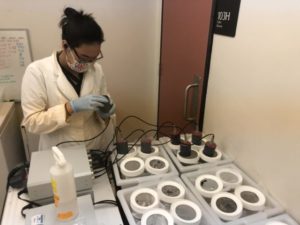
The combined program requires separate applications for the MS VPHE and DVM degree programs.
- Admission to the MS VPHE program does not ensure admission to the DVM program or vice versa.
- The DVM application is due September 15th, and applications will be reviewed via the usual DVM admission procedures.
- You may apply to the MS VPHE program prior to, during, or after applying to the DVM program.
- Applications to the MS VPHE program are accepted and reviewed on a rolling basis, with decisions typically made within 2 months.
- If submitted as part of your DVM application, official transcripts, letters of recommendation, and test scores do not need to be resubmitted with your MS VPHE application.
Cost of Attendance
For the cost of attendance (COA), including the estimated cost of tuition and fees, books and supplies, housing, etc., visit:
- the Aggie One Stop webpage for professional students and select “Veterinary Students” for DVM COA, plus
- the Aggie One Stop webpage for graduate students and select “College Station Graduate” for MS COA.
How to Apply
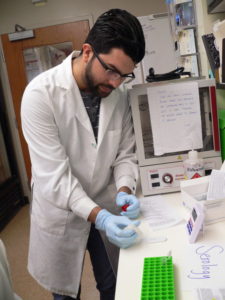
1) Complete the DVM Application
The DVM application is due annually on August 30th and applications will be reviewed via the usual DVM admission procedures.
2.1) Complete the Texas A&M GraduateCAS Application
Applicants must complete the Texas A&M GraduateCAS application.
The application has four quadrants: personal information, academic history, supporting information, and program materials. Within GraduateCAS, you will be provided with all of the necessary prompts for completing the application.
There is an accompanying application fee that will be assessed through GraduateCAS prior to application submission.
The MS VPHE application fee will be waived for those accepted into the Texas A&M Professional DVM Program for the current admissions cycle.
2.2) Upload a Personal Statement
Applicants must write a personal statement (typically 1 -2 pages) that addresses the following questions:
- Why have you chosen to pursue becoming a healthcare professional as your career?
- Why do you want to complete the MS VPHE?
- Why do you wish to pursue both DVM and public health/epidemiology training simultaneously in a combined program?
- Is there anything about you or your academic background that the admissions committee should know or might benefit from considering?
2.3) Upload Official Transcripts*
- Applicants must upload transcripts from each undergraduate and graduate degree-granting institution they have attended.
- Unofficial transcripts may be uploaded; however, if you are admitted, official transcripts will need to be sent to the Office of Admissions.
- Current and former students of Texas A&M: Texas A&M transcripts do not need to be submitted.
- Also, all courses that have been transferred to Texas A&M will be reflected on a Texas A&M transcript.
2.4) Official standardized testing scores*
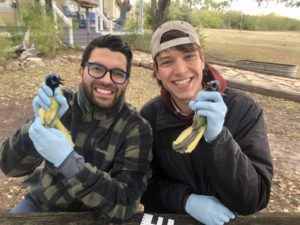
GRE*
- The GRE requirement is NOT required for the MS VPHE Degree Program, including the MS/DVM Combination Program.
- All applicants seeking admission have the option to submit official score reports from the GRE or a professional program entrance exam (MCAT, DAT, etc.).
2.5) Upload letters of recommendation*
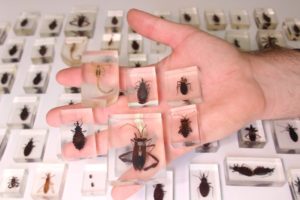
- Applicants must provide a minimum of three letters of recommendation from science faculty showing dedication toward research and veterinary public health, and mitigating application blemishes.
- Applicants may also choose to submit non-academic recommendations that can speak to their relevant knowledge and/or experience.
- There is no page limit for these letters.
- HOW TO SUBMIT
- GraduateCAS will direct you to the Letters by Liaison portal, where you will submit the names and emails of your recommenders.
- After you submit the names of your recommenders, they will receive instructions for completing the electronic evaluation.
- The GraduateCAS application may be submitted without submitting your recommenders’ contact information through the Letters by Liaison portal.
- However, these letters must be received for your application to be reviewed.
- GraduateCAS will direct you to the Letters by Liaison portal, where you will submit the names and emails of your recommenders.
*Not applicable if already submitted with DVM Application.
Curriculum
Overview
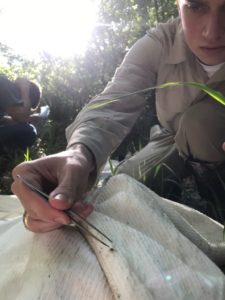
The DVM professional curriculum is a four-year program.
- During the first three years, classes are scheduled on a semester basis.
- The fourth-year curriculum:
- consists of:
- 26 weeks of Basic Core Rotations
- 18 weeks of elective clinical rotations or career alternative electives
- 4 weeks of externship
- 2 weeks of vacation
- allows students to choose a species-directed career, by focusing on one of these tracks:
- equine
- companion animal
- rural/mixed animal
- food animal
- a career alternative track
- consists of:
Below is the degree plan for the MS/DVM combination program.
- While the individual degree programs require a total of 213 credit hours, this degree plan allows 6 hours of public health-related coursework to apply for credit towards completion of both the MS VPHE and the DVM degrees.
| Summer – 0* | * All courses for Summer – 0 are available remote – online. | |
| STAT 651 | Statistics in Research I | 3 |
| VIBS 633 | Animal Diseases in Comparative Medicine | 3 |
| VIBS 608 or VIBS 685 | Epidemiology Methods I or Directed Studies | 4 |
| Semester Credit Hours | 10 | |
| First Year | ||
| Fall – 1 | ||
| VIBS 681 | Seminar | 1 |
| VIBS 910 | Small Animal Anatomy | 4 |
| VIBS 911 | Histology | 1 |
| VIBS 936 | Veterinarians in Society | 2 |
| VSCS 910 | Integrated Animal Care I | 3 |
| VTPB 910 | Veterinary Immunology | 2 |
| VTPP 910 | Physiology I | 6 |
| VTPP 914 | Professional & Clinical Skills I | 3 |
| Semester Credit Hours | 22 | |
| Spring – 1 | ||
| VIBS 681 | Seminar | 1 |
| VIBS 912 | Clinical Anatomy of Large Animals | 3 |
| VIBS 914 | Professional & Clinical Skills II | 3 |
| VLCS 910 | Integrated Animal Care II | 2 |
| VTPB 922 | Pathology I | 3 |
| VTPB 925 | Agents of Disease I | 4 |
| VTPP 912 | Physiology II | 5 |
| Semester Credit Hours | 21 | |
| Summer – 1 | ||
| VIBS 608 Or VIBS 685 | Epidemiology Methods I (if not yet complete) or Directed Studies | 4 |
| VIBS 685 | Directed Studies | 3 |
| Semester Credit Hours | 7 | |
| Second Year | ||
| Fall – 2 | ||
| VIBS 681 | Seminar | 1 |
| VIBS 928 | Public Health, Epidemiology and Evidence-Based Medicine | 3 |
| VSCS 926 | Professional and Clinical Skills III | 3 |
| VTPB 930 | Agents of Disease II | 4 |
| VTPB 927 | Clinical Laboratory Medicine-Clinical Pathology | 5 |
| VTPB 923 | Pathology II | 3 |
| VTPP 924 | Pharmacology | 3 |
| Electives 1 | 2 | |
| Semester Credit Hours | 24 | |
| Spring – 2 | ||
| VIBS 681 | Seminar | 1 |
| VIBS 948 | Didactic Electives in Veterinary Anatomy (21st Century Global One Health) | 1 |
| VLCS 924 | Diagnostic Imaging & Interpretation I | 2 |
| VLCS 926 | Professional & Clinical Skills IV | 3 |
| VLCS 948 | Large Animal Medicine and Surgery Elective (Veterinarians Impacting Their Community) | 1 |
| VMID 944 | Integrated Animal Care III – Elements of Care | 4 |
| VSCS 930 | Principles of Anesthesia & Analgesia | 3 |
| VSCS 932 | Principles of Surgery | 2 |
| VTPB 932 | Organ Dysfunction: Recognition, Diagnostics and Supportive Care | 4 |
| Semester Credit Hours | 21 | |
| Summer – 2 | ||
| ENTO 689 | Special Topics in… (One Health Outbreak Investigation) | 3 |
| VIBS 615 | Food Hygiene | 4 |
| VIBS 689 | Special Topics in… (Capstone Experience) | 2 |
| Semester Credit Hours | 9 | |
| Third Year | ||
| Fall – 3 | ||
| VLCS 956 | Large Animal Diagnostics & Therapeutics I | 3.5 |
| VLCS 925 | Diagnostic Imaging & Interpretation II | 2 |
| VMID 935 | Surgery | 5 |
| VSCS 934 | Professional & Clinical Skills V | 3 |
| VSCS 956 | Small Animal Diagnostics & Therapeutics I | 4.5 |
| Select one of the following: | 2 | |
| VLCS 958 | Career-Focus Tracking I – Food Animal | |
| VLCS 959 | Clinical Focus-Tracking I – Equine | |
| VSCS 958 | Clinical Focus-Tracking I – Companion Animal | |
| Career Selective 2 | 4 | |
| Semester Credit Hours | 24 | |
| Spring – 3 | ||
| VLCS 957 | Large Animal Diagnostics & Therapeutics II | 3.5 |
| VMID 964 | Clinical Experience | 3 |
| VMID 966 | Professional and Clinical Skills VI | 4 |
| VSCS 957 | Small Animal Diagnostics & Therapeutics II | 4.5 |
| Select one of the following: | 2 | |
| VLCS 960 | Clinical Focus-Tracking II – Equine | |
| VLCS 961 | Career-Focus Tracking II – Food Animal | |
| VSCS 960 | Clinical Focus-Tracking II – Companion Animal | |
| Career Selective 2 | 2 | |
| Public Health Selective (VIBS 988) | 2 | |
| Semester Credit Hours | 21 | |
| Fourth Year | ||
| Clinical Track: Alternative 3 | 48 | |
| Semester Credit Hours | 48 | |
| Total Semester Credit Hours | 207 |
| 1 | Select 2 elective courses during this semester from VIBS 948, VLCS 948, VSCS 948, VTPB 948, and VTPP 948. |
| 2 | Select from courses highlighting veterinary career options in public health & public policy, research, business & practice, lab animal medicine, exotics/zoo/wildlife, and avian/reptiles/pocket pets during this semester, including VIBS 988, VLCS 988, VMID 988, VSCS 988, and VTPB 988. |
| 3 | See the DVM program manager for a complete list of courses for the Alternative Track. |
For More Information
Christine M. Budke, DVM, Ph.D. | Professor & Department Head
Epidemiology & Public Health (VPHE) Program | Program Director
MS VPHE / DVM Combination Degree Program | Director
Department of Veterinary Integrative Biosciences (VIBS)
Texas A&M College of Veterinary Medicine & Biomedical Sciences
4458 TAMU | College Station, TX, USA 77843-4458
Tel: 979.458.2154 | Email: CBudke@tamu.edu
Mrs. Kristina Agan | Program Coordinator
Veterinary Public Health & Epidemiology (VPHE) Program
MS VPHE / DVM Combination Degree Program
Department of Veterinary Integrative Biosciences (VIBS)
Texas A&M College of Veterinary Medicine & Biomedical Sciences
4458 TAMU | College Station, TX, USA 77843-4458
Tel: 979.458.7316 | Email: KAgan@tamu.edu
